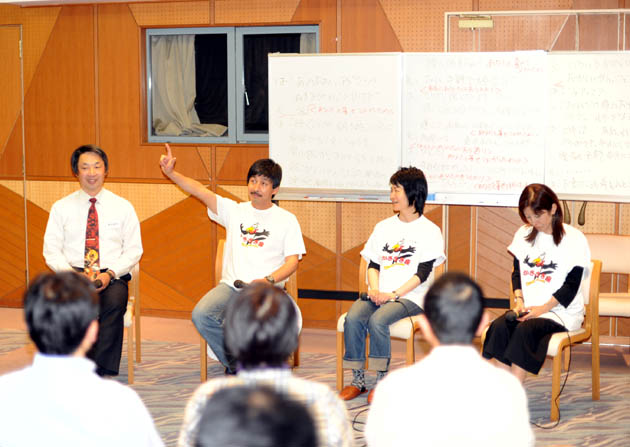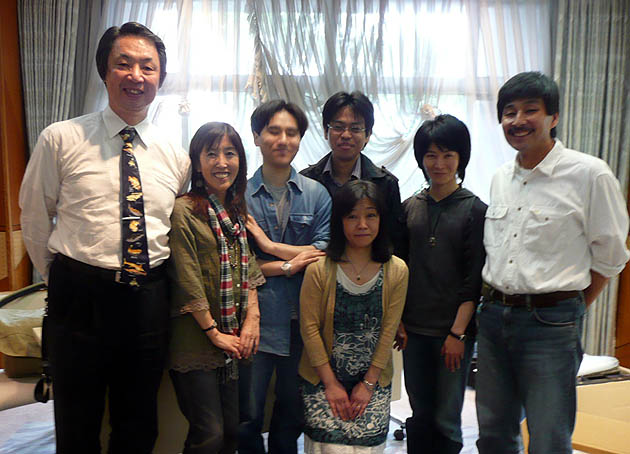
There are three directors in our psychodrama workshop. I am a supervisor and do not direct dramas. A participant who wants to act in a play as a protagonist, must meet a director beforehand, and tell him or her the problem in brief. One of the directors appoints him or her afterward as the protagonist. On the stage, the director asks the problem to the protagonist again, and selects antagonist(s) from the participants. The first action is performed according to the protagonist’s confession. Then the director calls the conference. The protagonist, three directors and I sit on the stage and make a plan of the second action.
A lady is anxious about many things; her sister is mentally disturbed and often asks her for money, her nephew is delinquent and his schoolteacher phones her to come, a local welfare officer pushes her to take care of the sister, etc. The director selected many antagonists, including even her bank account. The play was so confusing and miserable. In the conference, I proposed to change music. I played lively dance music, and antagonists danced around her. The director suggested her to say to anybody, “Okay, okay, trust me!” The result was literally dramatic. She said, “I can do what I can do. I cannot do what I cannot do. That’s all. I understand well that the anxiety is only in my mind, not in the actual world.”

A gentleman, who lives alone apart from his family because of the job, often phones his daughter and gives her detailed instructions about everything very officiously. The daughter, however, is cool and indifferent to him. In the conference, he said to the director, “I am lonely, because she does not accept me.” The director said to him, “Okay, add ‘I am lonely!’ after each sentence you say.” In the second action, he sounded not so officious, even though he told her the same words to the first action, just adding, “I am lonely!” at the tail. The antagonist was more relaxed and answered him with other words, far more softly and tenderly. At the third action, the director instructed him not to say, “I am lonely!” He told her exactly the same words as the first action, but everything was different. The conversation was very human this time.
We have the sharing conference once or twice a day. We give theoretical explanations of the techniques used in each drama. I believe this workshop is a very good opportunity to learn the application of Adlerian Psychology in various actual situations of life.

